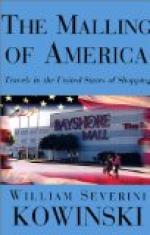I awoke this morning about two o’clock by the cry of fire, and the jingling of all the church bells, which, with the rattling of the engines, call for water, and other et caetera of a bostonian fire-alarm, form a concert truly horrible.
As sleep was impossible under such circumstances, I immediately rose, and found the town illuminated. When the alarm is given at night, the female part of the family immediately place candles in the windows. This is of great service in a town where there are few lamps.
I found the fire had broken out in one of the narrow streets, and was spreading fast on all sides. I was much pleased with the regularity observed by these amateur fire-men. Each engine had a double row, extending to the nearest water; one row passed the full, and the other the empty buckets. The citizens not employed at the engines were pulling down the adjacent buildings, or endeavouring to save the furniture; their behaviour was bold and intrepid. The wind blew fresh at N.W.; and nothing but such uncommon exertions could possibly have saved the town, composed, as it is, of such combustible materials. You will naturally inquire, whether they have no other. Yes, brick and stone in great plenty; but the cheapness of a frame, or wooden building, is a great inducement for the continuance of this dangerous practice: but there is one still greater, viz. a strange idea, universal in America, that wooden houses are more healthy, and less liable to generate or retain contagious infection than those of brick or stone. This notion has been ably controverted by one of their best writers[Footnote: Jefferson, vicepresident of the United States.], but with little effect; and, like all other deep-rooted prejudices, will not easily be eradicated.
Your papers have, I suppose, informed you of a set of diabolical incendiaries having set fire to Savannah, Charleston, Baltimore, and New York. The villainy of these infernals is likely to be productive of some good. The inhabitants of Charleston have agreed to prohibit the erection of wooden buildings in that city. The philadelphians had before come to this prudent resolution, within certain limits, I was present when this matter was agitated. It was violently opposed by the democratic party; who insisted, that in a free country, a man has a right to build his house of what materials he pleases. “True,” said I, “of stone-brimstone —use gun-powder for lime, and mix it with spirit of turpentine,” Farewell.
Yours, &c.
P.S. I thank you for the Apology. It has been already twice answered in this country, or rather, the bishop has been as often abused; first, by a deist of New York, for speaking too favourably of the Bible; and secondly, by a hot-headed frantic of New England; who, in a work he calls The Bible needs no Apology, rails at his lordship for the opposite reason, and consigns him to eternal damnation, for not insisting on every sentence of scripture being the inspired word of God.




